Now that I’m far enough away from the years when I was growing up (*gulp*), here’s a little bonus to go along with my annual column. Winners in bold, then we’ll break it down.
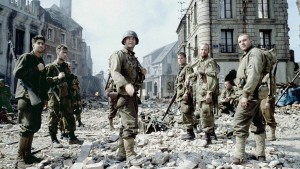
BEST PICTURE
Elizabeth
Life Is Beautiful
Saving Private Ryan
Shakespeare in Love
The Thin Red Line
Should have won: Saving Private Ryan
Not even nominated: The Truman Show
That a movie as nice but trifling as Shakespeare in Love won Best Picture is a testament more to Harvey Weinstein’s aggressive campaign tactics than the film’s enduring legacy. It’s not a bad movie by any stretch, but it’s only thought of fondly by people who already thought it was better than Saving Private Ryan. I do not understand those people. Even though Ryan has some issues itself, and it’s often cited as one of the best movies ever by the kinds of people you don’t want to talk about movies with, its only competition is another World War II movie – somehow three were nominated this year, along with two films set during the reign of Elizabeth I – and thus I’m splitting the difference in this re-do. That all the Best Picture nominees are period pieces speaks to how little the Academy at the time seemed to care about movies that spoke to the here and now. The Truman Show would have been a better nominee here than Elizabeth. It remains such a unique creation, and should have picked several other nominations, including Best Production Design, Best Original Score and Jim Carrey for Best Actor. But more on that later.
20 years later, Saving Private Ryan stands tall because it’s Spielberg at his prestigious best. Schindler’s List may be more deeply felt and better acted, but the Omaha Beach scene alone is Spielberg’s finest achievement as a director. Yet because he’s already got one, I can’t let this opportunity go by without honoring another director, one who probably won’t be getting one any time soon.

BEST DIRECTOR
Roberto Benigni, Life Is Beautiful
Steven Spielberg, Saving Private Ryan
John Madden, Shakespeare in Love
Terrence Malick, The Thin Red Line
Peter Weir, The Truman Show
Should have won: Terrence Malick
Not even nominated: Alex Proyas, Dark City
The only camp I do understand is the people who prefer The Thin Red Line to Saving Private Ryan. I don’t necessarily share that view, but taken together, these are among the very best films about the American experience in World War II. They also encompassed just about every actor in Hollywood, even if it’s just for a moment. The Thin Red Line is more lyrical and abstract, but no less devastating. It’s far less traditional but just as impactful. What I wouldn’t give for a five-hour director’s cut.
And frankly, I always forget that John Madden was actually nominated for Shakespeare in Love. So I’d rather have Alex Proyas up there, whose fascinating dystopia in Dark City was, in the words of the late great Roger Ebert: “one of the great modern films. It preceded The Matrix by a year (both films used a few of the same sets in Australia), and on a smaller budget, with special effects that owe as much to imagination as to technology, did what The Matrix wanted to do, earlier and with more feeling.”
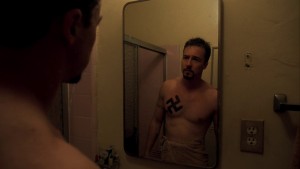
BEST ACTOR
Roberto Benigni, Life Is Beautiful
Tom Hanks, Saving Private Ryan
Ian McKellen, Gods and Monsters
Nick Nolte, Affliction
Edward Norton, American History X
Should have won: Edward Norton
Not even nominated: Jeff Bridges, The Big Lebowski
This is a really excellent category. I didn’t hate Benigni’s win then or now. It was his peak as an actor and director. Not so for Hanks, McKellen or Nolte. But here’s where things get dicey. Edward Norton truly gave the best performance of anyone in 1998 in American History X. He is so magnetic, so terrifying, and eventually so broken that you’ll never forget the film (even if it’s got a lot of issues). But 20 years later, the prospect of a person winning the Oscar for playing a charismatic Nazi is so problematic I don’t know where to begin. (But if you’re an illiterate statutory rapist, the Oscars are down with that.)
So let’s all feel a bit better about ourselves and talk about Jeff Bridges. As the Dude – or His Dudeness, or El Duderino if you’re not into the whole brevity thing – he created an instantly iconic portrayal of hippie malaise, a guy who was way too comfortable smoking pot while rich white guys took over the world he thought he lived in. But this aggression will not stand, man. Taking victories where he can, and his lumps when he has to, he kinda sorta uncovers a mystery involving the Big Lebowski (David Huddleston), but gets kicked out of Malibu, impregnates the man’s daughter (Julianne Moore) and drinks enough White Russians to kill a man of less fortitude. Yes, his performance might be overlooked now because some insufferable fans have elevated him to messianic levels, but this is Jeff Bridges’ finest hour.
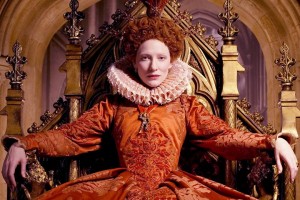
BEST ACTRESS
Cate Blanchett, Elizabeth
Fernanda Montenegro, Central Station
Gwyneth Paltrow, Shakespeare in Love
Meryl Streep, One True Thing
Emily Watson, Hilary and Jackie
Should have won: Cate Blanchett
Not even nominated: Jennifer Lopez, Out of Sight
Gwyneth Paltrow is radiant in Shakespeare in Love, but she’s got nothing on Cate Blanchett in her breakout role. She’s got all the passion, all the strength, all the hopelessness of being caught between machinations beyond her control. It’s a star-making role. Yes, she’d get some more chances in the future, but this should have been a moment of literal crowning. (It also helps that Blanchett used her acclaim to keep taking challenging roles, while Paltrow used her status to become a high-end con artist.)
And who knows what would have happened if J. Lo had been nominated here. Maybe she would have kept working with directors who knew how to use her, instead of just being the go-to for so-so rom-coms. As Karen Sisco, she’s sexy, smart and fearless. If she had stuck with films like this, Selena and The Cell, maybe she wouldn’t have been the dominant pop culture figure she was in the early 2000s, but she might be recognized as one of our best actresses (when given the right material).
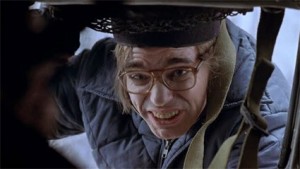
BEST SUPPORTING ACTOR
James Coburn, Affliction
Robert Duvall, A Civil Action
Ed Harris, The Truman Show
Geoffrey Rush, Shakespeare in Love
Billy Bob Thornton, A Simple Plan
Should have won: Billy Bob Thornton
Not even nominated: Bill Murray, Rushmore
James Coburn certainly gives a towering performance in Affliction, haunting even the scenes he’s not in. But when it comes to films in snowy locales about crime and family secrets, give me A Simple Plan any day of the week. While Sam Raimi will always be known for the Evil Dead and Spider-Man trilogies, this is his single greatest film, directing Bill Paxton, Bridget Fonda and Billy Bob Thornton to their best performances. Like a fucked-up O. Henry story, it’s a tragic tale of greed killing a family’s one chance to get out of poverty. My theory is that it was overlooked coming so close to Fargo, but it’s a much darker and thematically richer film. As Jacob, Thornton is playing one of the most profoundly pathetic characters in cinema.
Just a year before, Murray was still turning up in forgettable PG-rated comedies like Larger Than Life, The Man Who Knew Too Little and Space Jam. But his first collaboration with Wes Anderson marked a big turning point. Yes, he’d still lend his voice to Garfield, but he’d also work with Sofia Coppola, Jim Jarmusch and more interesting directors. He’s such an excellent counterpoint to Max in Rushmore, no less confident that he can win the heart of Rosemary (Olivia Williams), but just as flustered in their war. Seeing the adult come down to the kid’s level will always be funny.
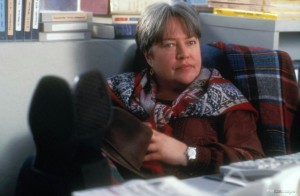
BEST SUPPORTING ACTRESS
Kathy Bates, Primary Colors
Brenda Blethyn, Little Voice
Judi Dench, Shakespeare in Love
Rachel Griffiths, Hilary and Jackie
Lynn Redgrave, Gods and Monsters
Should have won: Kathy Bates
Not even nominated: Joan Allen, Pleasantville
It’s been 20 years, and Kathy Bates’ turn in Primary Colors remains one of my all-time favorite performances. Out of fucks to give long before the Stanton campaign is besieged by scandals, she’s Jack and Susan’s biggest asset. But when they treat her like that instead of their friend, covering up Jack’s crimes and expecting her to go along with it, she makes the betrayal feel real, too.
The only other performance that comes close for me wasn’t even nominated. Gary Ross’s dazzling Pleasantville was relegated to the technical categories, but Joan Allen is the film’s best special effect, playing a lonely housewife who comes to life when after spending time with a man (Jeff Daniels) who actually cares about her needs instead of when dinner will be ready.

BEST ORIGINAL SCREENPLAY
Bulworth
Life Is Beautiful
Saving Private Ryan
Shakespeare in Love
The Truman Show
Should have won: The Truman Show
Not even nominated: Rushmore and The Big Lebowski
A pretty stellar line-up, even if the year’s two best comedies aren’t present. Shakespeare in Love is clever, but it doesn’t create an entire world with so many real characters (even when they’re playing fake ones) like The Truman Show. Any two here could be cut for the sake of classics from Wes Anderson and the Coen Brothers. And Bulworth remains a fascinating if problematic political satire, mostly because a lot of Warren Beatty’s absurd policy proposals sound pretty good right now.

BEST ADAPTED SCREENPLAY
Gods and Monsters
Out of Sight
Primary Colors
A Simple Plan
The Thin Red Line
Should have won: Out of Sight
Not even nominated: Babe: Pig in the City
This is an all-timer line-up. Like Best Picture in 1975, there’s not a thing to change. Just five incredible nominees, all duking it out. Like its counterpart in the Original Screenplay category, Gods and Monsters uses real historical figures to tell a fictional story, but there are better choices here. Scott Smith’s adaptation of his own novel is a devastating crime story. The Thin Red Line provides lovely voice-over to match its gorgeous visuals. And Elaine May turns Joe Klein’s gossipy prose into a study of what level of indecency we’re willing to accept from our politicians. But it’s Scott Frank’s absolutely perfect adaptation of Elmore Leonard’s novel that takes the cake for me. While the film owes a lot of its success to Steven Soderbergh’s direction, the impeccable chemistry/palpable sexual tension of Jennifer Lopez and George Clooney and its Oscar-nominated editing, Frank’s script nails the perfect dialogue for each character while narrowing down Leonard’s dense narrative into a two-hour film that’s over in a flash but leaves an indelible mark.
If one were to add a film to this group, it would have to be Babe: Pig in the City, somehow ignored after its predecessor earned seven nominations including Best Picture. It’s darker and less straightforward than the movie that every kid knows by heart, but its cult has grown significantly over the last 20 years. (Though Siskel and Ebert knew what was up even back then.)
Pingback: Streaming Picks: November 2019, Part 1 | KipMooney.com